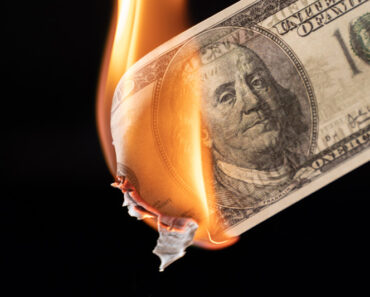Looking at the videos of Hurricane Ian and the destruction it has wrought in Florida reminds me of all the other times I’ve looked at videos of hurricane damage before. It is truly amazing how much force nature can muster to throw at our efforts at taming our planet. Hurricanes and other natural disasters leave destruction in their wakes; not only of things that we have built, but of lives as well.
It’s always odd to see how some homes are turned into matchsticks, while the ones right next door seem to survive, all but unscathed. Sometimes that seems to be nothing more than random chance, as when a tornado destroys one home, skips over the next, then touches down to continue its path of destruction. Other times, I have to wonder what the people who built the homes that survived did right, to make it so that their home survived, even if it did suffer some damage.
In any case, there have been many disasters where people lost everything but what they had in their suitcases when they fled. Anything left in the home is scattered, even if it did survive. The chances of finding things that were precious to the family are slim at best, leaving the family without even those mementoes to help them rebuild their lives.
Of course, this is why we are preppers; to protect our families from being amongst those who are left with nothing. Even so, there are some disasters that no amount of preparedness is going to help our homes survive. A wildfire burning down our town or a tornado leveling it doesn’t leave most preppers in much better shape than their neighbors. If everything they own is in their home and the home is destroyed, their stockpile and everything else they have is either burned up or scattered all over the neighborhood.
Yet there are things we can do, which will help us not only to survive; but to thrive after that disaster passes. We just need to plan for more than merely surviving.
Your Bug Out Bag
I realize that you don’t have extra space or weight capacity in your bug out bag to be hauling around a lot of extra stuff; but I’m sure you’ve got enough room for a thumb drive. Copy all of your important documents on it, including titles to everything you own, bank and credit card information, school records, medical records and memberships in any fraternal organizations. Then fill the rest of the space with family photos, especially the ones which you don’t already have on Facebook or some other digital storage. Those pictures will help your family connect with their past, even if everything else is gone.
Your Supply Cache
You have to have a supply cache that’s outside your home and preferably outside your town. It should be close to where you’re bugging out to, if you can’t actually have it at your survival retreat. Make sure it’s well stocked with more than just food. You’ll need things like camping gear and clothing too. If something devastating happens to your home, like flooding or a fire, you’ll at least have something to keep you going, while you’re trying to get insurance to pay off and find someplace to live.
Keep in mind that the things you have stored in that cache may end up being all you have to work with for a while, other than what’s in your bug out bags. That makes your cache infinitely more important than just giving you food to eat. It may be what you use to restart your life. With that in mind, it isn’t far-fetched to put your old computer in there, loaded with software and useful data. Nor does it seem far-fetched to put extra items that you can’t use in your home now, but you might be able to use starting over. Better to store it there, than to have it destroyed because it was in the basement that flooded.
The other thing that it would be a good idea to do is to store some mementoes in your cache. It doesn’t have to be big, bulky, expensive or a lot; but just having a few touchstones with your family’s past can make all the difference in the world, when you’re trying to put your lives back together.
Your Finances
Preppers are notoriously bad at saving money; mostly because we put every spare penny we can find into our preps. But that may not be the best thing to be doing, at least from the point of starting over or even from the point of bugging out, for that matter. If you’ve got to bug out, you’re going to need cash. Even though a lot of states have laws against it, price gouging is the norm during times of disasters, not the exception. Just buying gas can empty your wallet.
It’s a good idea to keep $1,000 in cash on-hand if you can, along with a few thousand more in readily and remotely accessible savings. That way, you’ll have money for gas, food, hotels and whatever else crops up while you’re bugging out.
The other thing is to make sure that you have secure copies of all your important financial information, especially bank accounts, debit cards and credit cards. Don’t forget to include the emergency numbers to report lost or stolen cards. If you and your spouse both have debit and credit cards to the same accounts, take one set and hide them someplace secure, like an interior zipper pocket in your bug out bag, while using the other set for your needs. That gives you something to work with, even if you get robbed.
Starting Over
The big question for any of us, is where to start over. Most people will have a sentimental attachment to their home and want to rebuild. That’s understandable, if you can. But before making that decision, realize that if you can’t make your home either just like it was or better, you will be forever dissatisfied with that home. If you’re not going to be able to rebuild as good as you had before, you’re better off going elsewhere.
The other big problem with rebuilding is that your homeowner’s insurance may cover the cost of rebuilding, but may not cover the cost of cleaning up your property so that you can rebuild. That can end up costing another $20,000, which you’ve got to cough up. If you don’t have it, you’ll have to take it out of the insurance settlement, meaning that you’ll have less to rebuild with.
After Hurricane Katrina devastated New Orleans, there were a lot of people who decided they just couldn’t go back and rebuild. They took what FEMA offered and what they could get from their insurance and decided to move on, starting anew elsewhere. The same happened in Paradise, California, after their town was destroyed by a wildfire. If you look at the town via Google Maps satellite view, you can see a lot of empty lots and very few rebuilt homes.
This is not to say that you shouldn’t go back and see what you can salvage from your home. it can be surprising what survives after a hurricane, tornado or fire. You won’t know until you look. You may find some things that help you to rebuild your life, even if you don’t rebuild that home, but move on to greener pastures.
Whatever you do have, whether it is things you have stored in your cache, things you brought with you in your bug out bags or things you managed to recover; those items will become the nucleus of rebuilding your life. Don’t be surprised if they end up becoming some of the most valuable things to your family, as touchstones with your past.
Dealing with the Emotions of Loss
One of the most important things you can do through such a time is to support each other emotionally. Going through time of loss is difficult for everyone, regardless of why the loss occurred. Turning against each other during such a time can tear a family apart, leaving each person adrift on their own, both emotionally and physically. But if you pull together and support each other, it can make your family and your family relationships all that much stronger.
You will all need to be comforted for the loss that you incur; more for the emotional loss of things that are important to you, than for the financial loss. The best people to provide that comfort, are those you are going through it with. Comfort each other and you will all be comforted. If you expect other, outside people to comfort you, you may never receive that comfort that you need.
There’s a strange thing that happens to people who go through rough times together, supporting each other. That shared hardship builds the strongest bonds that human beings can find. That’s why soldiers who have gone through combat together can be lifelong friends, even though they have nothing else in common. It’s not even that they seek that relationship; it just happens. It can happen to you and your family, just as easily as it happens to those soldiers.
Being strengthened by each other, you can go on to a better, more abundant life than you had before. Oh, it will be different; but you will all have been made stronger by what you’ve gone through. Use that to your benefit, allowing it to be the step that takes you higher than you’ve ever climbed before.




![PTW Episode 80- Are you Conflicted? [PODCAST] PTW Episode 80- Are you Conflicted? [PODCAST]](https://survivalcove.com/wp-content/uploads/2022/02/prepper-talk-podcast-banner-370x297.jpg)























